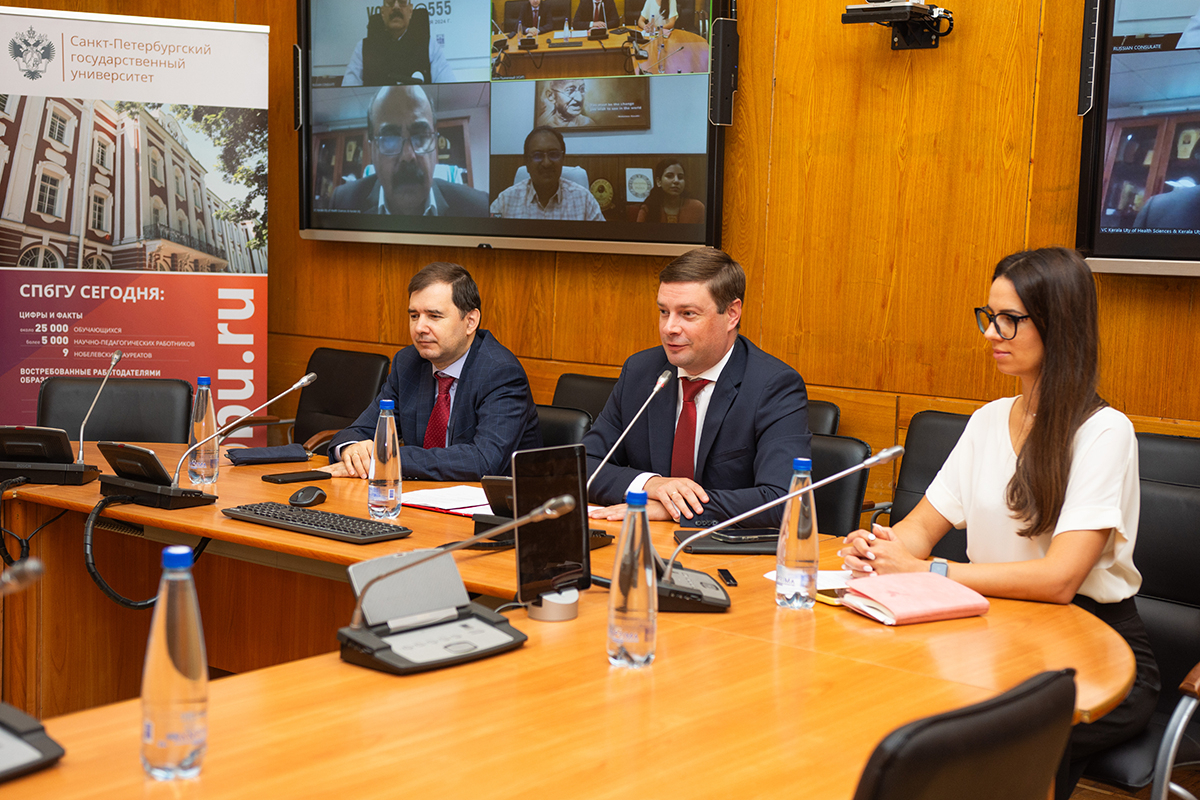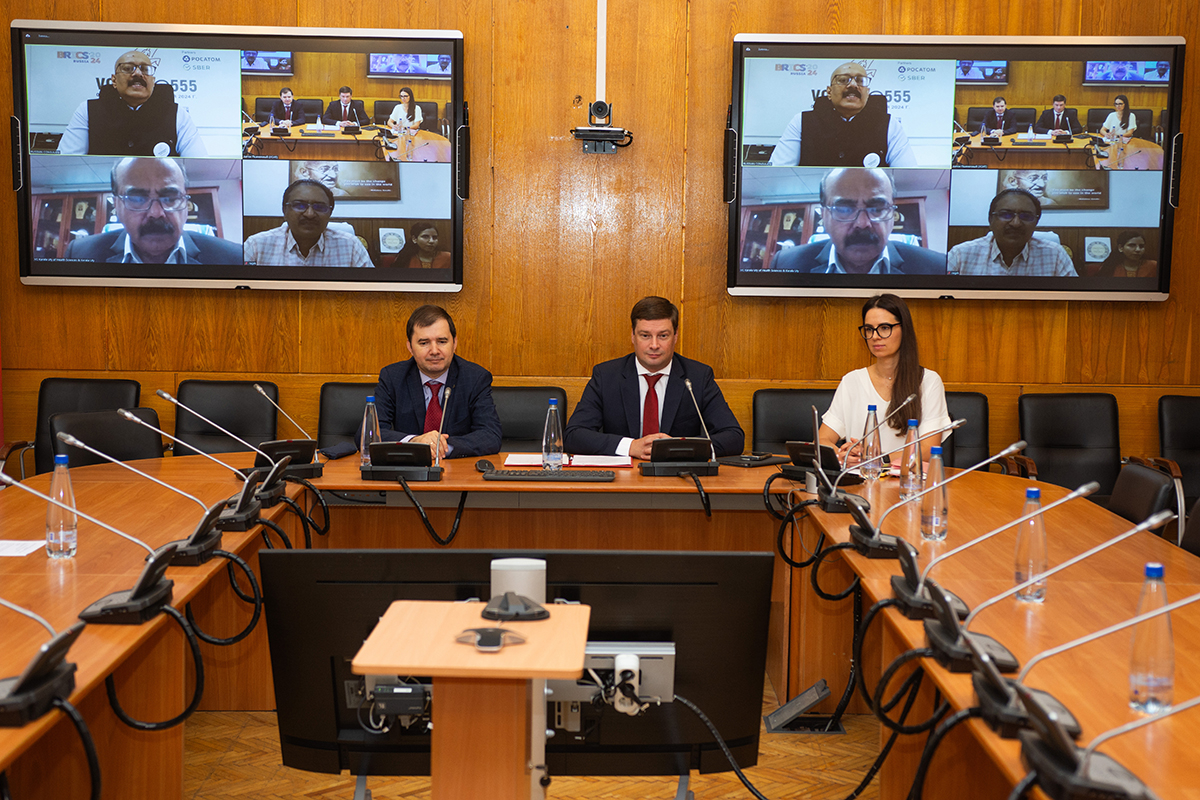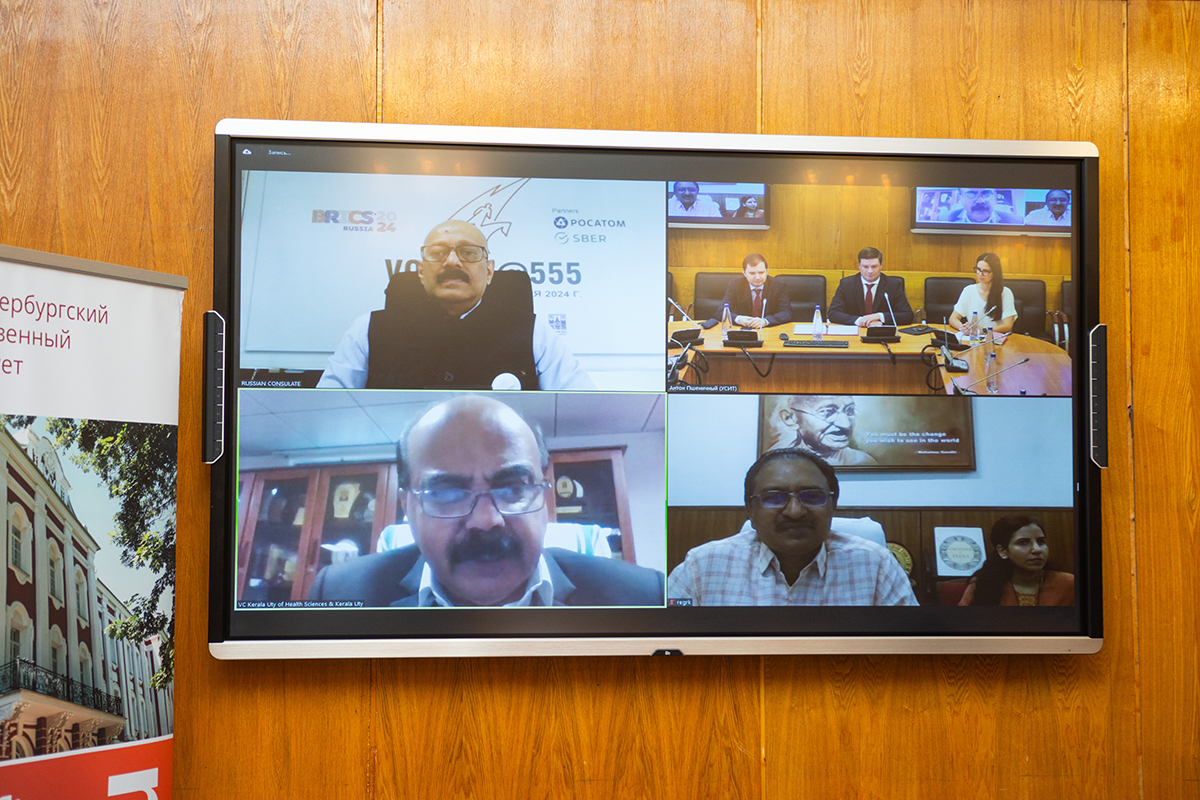Malayalam language to be taught at St Petersburg University
During a signing ceremony held online, St Petersburg University and the University of Kerala (India) have signed an agreement to collaborate in teaching Russian as a foreign language and the languages of South India.
The document was signed by Sergey Andryushin, Vice‑Rector for International Affairs at St Petersburg University, and Dr Anil Kumar, Registrar, in the presence of Dr Mohanan Kunnummal, Vice Chancellor of the University of Kerala. The ceremony was also attended by Mr Ratish Nair, Honorary Consul of the Russian Federation in India, and Alexey Rodionov, Senior Deputy Dean of the Faculty of Asian and African Studies at St Petersburg University.
Mr Ratish Nair, Honorary Consul of the Russian Federation in India, noted that the cooperation agreement was initiated and supported by the Russian House in Trivandrum, the capital city of the Indian state of Kerala. According to the agreement, St Petersburg University will help to enhance the qualifications of Russian language teachers at the University of Kerala, while their Indian colleagues will take part in organising the teaching of Malayalam, a language spoken by over 35 million people in Kerala, at St Petersburg University.
Today, St Petersburg University offers instruction in seven Indian languages, including Telugu, a language available at only two other European universities besides St Petersburg University. In total, the University provides teaching in over 80 languages from around the world.
According to Sergey Andryushin, the cooperation agreement between the two universities marks a significant step forward in strategic cooperation with both India and with the state of Kerala. It is in this region that the most successful joint projects are currently being implemented. For example, free Russian language courses for university and school students were launched at the Russian House in Trivandrum last year, with St Petersburg University’s active involvement.

‘We have ambitious plans for the future, and I am confident that this agreement will enable our universities to initiate new projects in science and education. We are particularly interested in student exchanges and hope they will foster the development of Malayalam language teaching at St Petersburg University,’ noted Sergey Andryushin. ‘The signing of the agreement in the year of the 300th anniversary of St Petersburg University is a notable event. As the oldest university in Russia, St Petersburg University holds a special status that enables it to form partnerships with industrial companies, regional governments, and ministries. To date, we have established a joint university in Egypt; a joint campus in China; a branch in Uzbekistan; and ten representative offices in countries, including: China; the Republic of Korea; Spain; and Thailand. We are also eager to expand our educational activities to India as well.’
It is of great importance to us to invigorate India‑Russia relations, particularly in the field of science and education. The academic sphere has always been a productive area where we are able to achieve meaningful results that benefit the development of our societies.
The parties also discussed the possibility of holding joint conferences; establishing academic exchange programmes for university staff; strengthening direct ties between researchers; and collaborating in other scientific areas.



